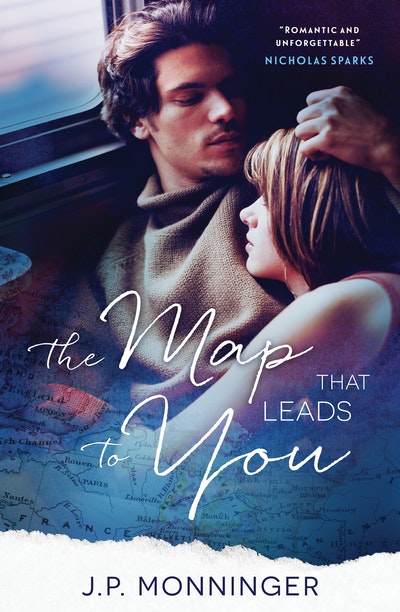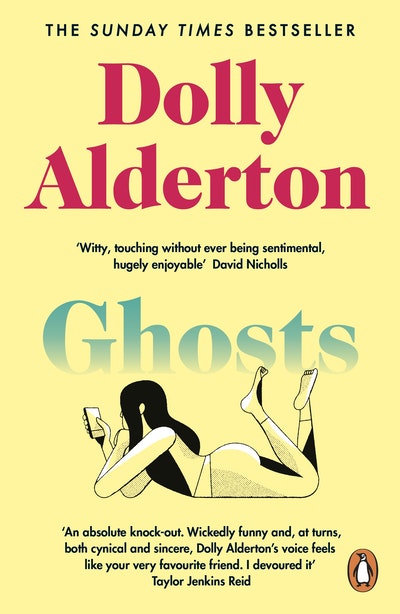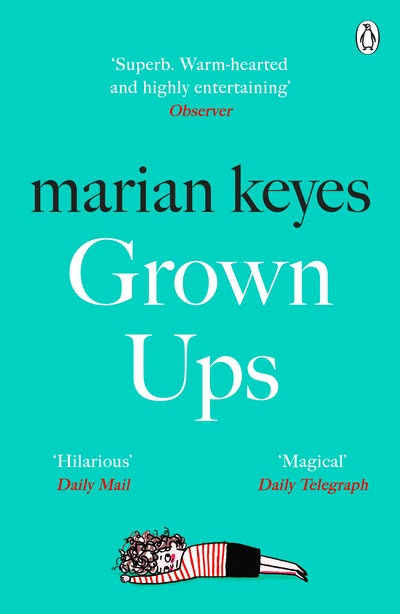- Published: 18 September 2017
- ISBN: 9780143788386
- Imprint: Michael Joseph
- Format: Trade Paperback
- Pages: 400
- RRP: $37.00
The Map That Leads To You
Extract
Here’s the thing: the rest of it wouldn’t have happened if the train to Amsterdam hadn’t been crowded. It was that kind of obnoxious crowded, with everyone greedy for space, every one annoyed that the train was overbooked and jammed, so I kept my head down once I had a seat, and I tried not to look up. I was reading The Sun Also Rises, which is a cliché, of course— recent college grad reading Hemingway on her first trip to Europe with her two friends—but I didn’t care. I had already made Constance and Amy drink coffee and cognac at Les Deux Magots, and I had walked the Left Bank in Paris and sat with the pigeons alone in the Jardin du Luxembourg. I didn’t want to leave Paris. I didn’t want to leave its wide boulevards, the men playing boules in the Tuileries, the cafés, the harsh swallows of strong coffee, the funny little horns on the scooters, the paintings and museums and the rich crêpes. I didn’t want to leave the early mornings when the café workers swept the cobblestones and rinsed down their areas with black hoses and silver water, or the evenings, either, when sometimes you smelled smoke, or chestnuts, and the old men with the long fishing poles sat on their three-legged stools and threw their lines baited with maggots into the Seine. I didn’t want to leave the booksellers along the river, the moldy stalls lined with old, yellowed books, the landscape painters who came and spread their oils across stretched canvas, attempting to capture what could never be captured but only hinted at, turned into a ghost of what the city held. I didn’t want to leave Shakespeare & Co., the English bookstore, the echo, the long, long echo of Hemingway and Fitzgerald, of nights splashing in the Ritz fountain, or squinty- eyed Joyce nibbling through his prose like a mouse hungry for print. I didn’t want to leave the gargoyles, either, the surprising, watchful stone eyes staring down from cathedrals, from Notre Dame and a hundred other churches, their white faces sometimes streaked with mysterious black, as if stone could hold tears and release them over centuries.
They say you can never leave Paris; that it must leave you if it chooses to go.
I tried to take Paris with me. In Paris, I had read A Moveable Feast, and A Farewell to Arms, and Death in the Afternoon. I had them all on my iPad, a mini-Hemingway portable library, and although I was traveling with Constance and Amy, I was also traveling with Hemingway.
So I read. It was late. I was in Europe and had been for two and a half weeks. I was on my way to Amsterdam. Constance fell asleep next to me—she was reading The Lives of the Saints and was on her own spiritual journey to read and see everything she could about saints, and to see every statue or representation of saints, which fed her special passion and the subject of her senior thesis, hagiography—and Amy stuck her head over the seat behind me and began chatting up a Polish guy named Victor. Victor smelled like sardines and wore a fatigue jacket, but Amy kept elbowing me a little when he said something she thought was cute, and her voice got that singsongy flirtatiousness that meant she was roping a guy and tying him up. Victor was good looking and charming, with a voice that made him sound vaguely like Dracula, and Amy, I saw, had hopes.
That’s where everything stood when Jack appeared.
“Could you hold this?” he asked.
I didn’t look up. I didn’t understand he meant me.
“Miss?” he asked.
Then he pushed a backpack against my shoulder.
I looked up. I saw Jack for the first time.
Our eyes met and didn’t let go.
“What?” I asked, aware one of us should have looked away by now.
He was gorgeous. He was actually more than gorgeous. He was big, for one thing, maybe six foot three and well built. He wore an olive fleece and blue jeans, and the way they hung on him made the combination look like the most inter esting outfit anyone had ever thought to wear. Someone or something had broken his nose a long time ago, and it had healed in an apostrophe shape. He had good teeth and a smile that started in dimples just an instant before he knew it was going to start. His hair was black and curly, but not ’Fro-ish, just Dead Poet-y. I noticed his hands, too; they were large and heavy, as though he wasn’t afraid to work with them, and he reminded me— just a little bit, just a bit, because it sounded silly to say it even to myself—of Hugh Jackman, the freaking Wolverine. This fellow looked insouciant—a stretch of a word but accurate nonetheless—a man who lived behind a wink that indicated he got the joke, was in on it, didn’t take it seriously, but expected you to go along with it. What that joke might be or how it counted in your life wasn’t quite clear, but it made the corners of my mouth rise a little in the ghost of a smile. I hated that he drew a smile out of me, even the reflex of a smile, and I tried to look down, but his eyes wouldn’t permit it. He dog stared me, humor just on the other side of his look, and I couldn’t resist hearing what he wanted next.
“Could you please hold this while I climb up?” he asked, extending the backpack again. His eyes stayed on mine.
“Climb up where?”
“Up here. In the baggage rack. You’ll see.”
He plunked his backpack on my lap. And I thought, You could have put it in the aisle, Wolverine boy. But then I watched him roll out his sleeping bag in a space he had cleared on the baggage rack across from me, and I had to admire his skill. I also had to admire his hindquarters, and the V of his back, and when he reached for his backpack, I looked down out of shyness and guilt.
“Thanks,” he said.
“No problem.”
“Jack,” he said.
“Heather,” I said.
He smiled. He put the backpack into the baggage rack as a pillow, then climbed up. He appeared too big to fit, but he wedged himself in and then took out a bungee cord and roped it around the supports so that he wouldn’t fall out if the train went around a bend.
He looked at me. Our eyes met again and held.
“Good night,” he whispered.
“Good night,” I said.
The Map That Leads To You J. P. Monninger
A breathtaking novel about love, loss, and the best-laid plans that are meant to be broken
Buy now











